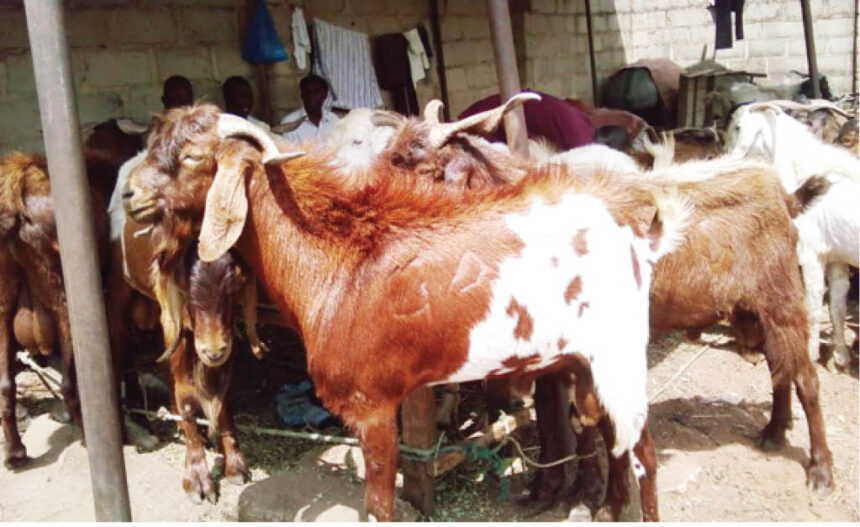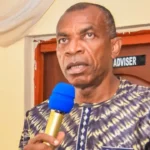The African Union Inter-African Bureau for Animal Resources (AU-IBAR) has identified Nigeria’s Feed and Fodder sector as a $1 billion investment opportunity.
This was revealed during the High-Level Inventory and Investment Forum for Nigeria, held in Abuja on Thursday, April 17, 2025.
Themed “Harnessing Feed and Fodder Data for Sustainable Livestock Sector Development, Resilience, and Stability,” the forum was organised by the African Union.
The AU-IBAR project focuses on boosting feed and fodder production, establishing a comprehensive feed inventory and balance sheet, and developing a data dashboard to monitor availability across six African countries, including Nigeria.
According to the organisers, the initiative is designed to advance livestock development, improve food security, and stimulate growth in the feed and fodder industry.
Speaking at the event, AU-IBAR Director Huyam Salih highlighted the importance of adequate feed and fodder supply, stressing that it is key to transforming the livestock sector and achieving greater productivity.
He said, “The project involves developing a feed and fodder dashboard to capture production and availability data, enabling governments to take corrective action to support the sector.
ALSO READ: Nigeria moves to transform livestock sector with national feed, fodder policy
“The dashboard will help identify gaps and shortages, allowing for early warning systems to be put in place.
She further stated that the project is being implemented across the 6 participating countries including Nigeria in Nigeria (West Africa), Cameroon, (Central Africa), Uganda and Kenya, (East Africa) and Somalia as well and Zimbabwe (South Africa).
Salih noted that the high-level event is to hand over the feed and fodder balance and data dashboard to the government of Nigeria after being developed as one of the activities by this project.
“Feed and fodder gap in the continent is so high and represents like 48% of the challenges faced by the livestock sector in Africa,” Salih said.
“Feed and fodder is subject to different climatic factors and commercial issues, the project has worked with the International Livestock Research Institute, ILRI, to prepare the inventory and the balance sheet for the animal feed and fodder in Nigeria and other countries.
“Besides that, we have developed the animal feed and fodder dashboard which will be capturing the production and the availability of feed and fodder and where there is a gap or a shortage.
“This will be captured by the system and dashboard and the work is done in collaboration with the National Bureau for Statistics so that the government will be able to take corrective action to support the production of animal feed and fodder.”
Delivering his keynote address, at the event, the Minister of Livestock Development, Idi Mukhtar Maiha, described the initiative as a “game-changer” in feed sector management, affirming its potential to drive investment, improve productivity, and strengthen the resilience of livestock farmers nationwide.
“These efforts have culminated in a reliable and scientifically validated Feed Inventory and Fodder Balance Report, providing an accurate picture of our feed resources, gaps, and opportunities,” the Minister stated.
“More importantly, this initiative has equipped us with tools to proactively plan for feed security, enhance market opportunities, and improve the livelihoods of millions of livestock farmers,” he added.
Laban MacOpiyo, the animal production, natural resources management and resilience expert, AU-IBAR ij his remarks, said Nigeria has a feed and fodder deficit of almost 10 percent.
The deficit according to him is largely due to distribution issues, with the northern part of the country, where most livestock are found, lacking adequate fodder, while the southern states have an abundance of feed and fodder that often goes to waste.
“Our assessment has assessed that this feed and fodder in Nigeria is a $1 billion investment opportunity,” he said.
MacOpiyo explained that investing in feed and fodder can address farmer-herder conflicts, upgrade livestock production, and contribute to food security.
“Feed and fodder need to be looked at as a business. It should not be an afterthought,” he stressed.
As you may know, to enhance and transform the livestock development in any African Union member state, we need first to ensure that there is sufficient feed and fodder to transform this development to make sure that there is a high productivity from the animals and the livestock.
The President of the Nigerian Feed and Fodder Mult-Stakeholder Platform, Maikano Mohammed Ari, highlighted the importance of addressing the feed and fodder deficit to promote exports and food security.
“Any country that cannot feed its animals cannot feed its own people,” Professor Ari noted.






